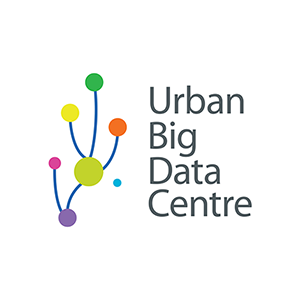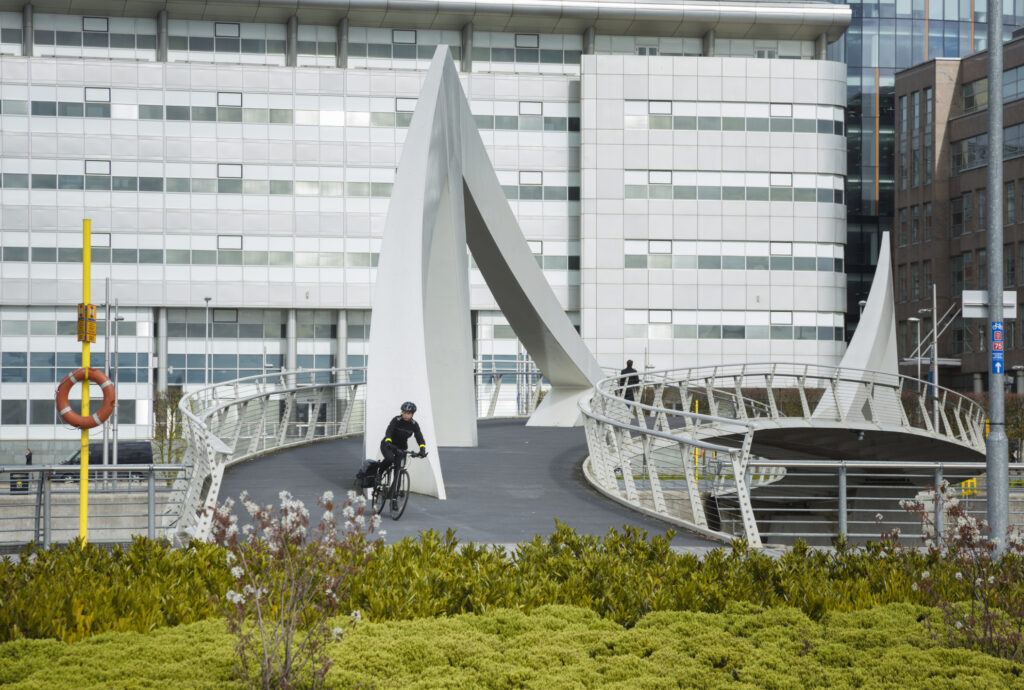Strava fitness data and what it can tell us about town planning
A study by the Urban Big Data Centre (UBDC) at the University of Glasgow used data collected from the Strava activity tracking app to investigate the links between cycling, weather, and infrastructure. Its findings informed the expansion of a city-wide cycling network.
At a glance
Safe cycle paths encourage people to cycle more, particularly on dry days
Rainy cities like Glasgow experience larger reductions in cycling volume on wet days, limiting the benefits of cycling infrastructure
Urban planners should consider weather-proofing cycle paths, workplace shower facilities, and cycling incentives to encourage year-round cycling
Strava data helps researchers and policymakers track cycling trends, evaluate infrastructure, and promote active travel
Glasgow City Council is expanding its cycling network based on UBDC research recommendations

What problem does this research address?
The benefits of cycling are well documented. It can reduce car dependency, traffic congestion, and air pollution and improve public health. These positive aspects have led many local authorities in the UK to encourage the uptake of cycling in towns and cities.
However, until recently, data on cycling has been difficult to gather or has lacked detail. This has meant planners haven’t always had the most valuable evidence to share with decision-makers.
Now activity tracking apps, with their wealth of digital data relating to routes travelled and distances covered, are opening up new possibilities for researchers and policymakers.
The team at UBDC has worked extensively with mobility data from Strava. Via its mobile app and website, Strava connects millions of runners, cyclists, hikers and walkers. Users can track their own journeys as well as the progress of others.
The anonymised datasets Strava produces enable economists and geographers at places like UBDC to gain a much clearer picture of the way people move about.
Mobility data in Glasgow
In 2020, the UBDC researchers worked with Strava data to examine the uptake of safe cycling routes on the streets of Glasgow.
Like many cities, Glasgow has spent a substantial amount of time and money providing safe cycling infrastructure to improve cycling environments. But, it is unclear whether these investments are an effective strategy to encourage people to cycle more in a city where it often rains!
The UBDC study investigated the relationship between cycling, weather, and infrastructure using data collected from the Strava app over one year. The researchers mapped the data with information on the location of cycling infrastructure and hourly weather data.
Specifically, two research questions were considered:
- Do safe cycle routes make a difference to cycling volumes?
- Does providing safe cycling infrastructure (i.e. segregated lanes and shared off-road lanes) encourage people to cycle more on rainy days?
Findings
For the UBDC study on safe cycling, the insights from the Strava data were invaluable.
The researchers found that providing safe cycle paths does encourage people to cycle more, especially on dry days.
However, their findings suggested that rainy cities like Glasgow may not have realised the full benefits of safe cycling infrastructure. There are larger reductions in the volume of cycling on rainy days on these routes.
The team recommended that planners, especially from cities with a high level of precipitation, should consider how to improve cycle paths to overcome adverse weather. They also suggested decision-makers consider other policies, such as providing shower facilities in workplaces and incentives to cycle. Such measures are likely to increase cyclists’ resilience to bad weather.
Impact
Glasgow City Council is expanding its cycling network, in line with the recommendations of the research papers produced by UBDC.
The researchers at UBDC have also produced another paper, presently under review, which extends their previous work by looking at what characterises the types of routes cyclists avoid and the types they are attracted to.
Smart data from the Strava app is helping researchers working at universities and institutes across the world. It is also enabling town planners to understand which routes people use, and which destinations are busiest. This can help academics and policymakers track how popular cycling is over time, evaluate the impacts of infrastructure, and plan new interventions to encourage active travel.
Find out more
Read the full paper here, and for more insights about mobility data, go to the Urban Big Data Centre website.
Supported by Smart Data Research UK and the University of Glasgow, the Urban Big Data Centre is a national research hub and data service. It champions the use of smart data to inform policymaking and enhance the quality of urban life.

Smart Data Research UK would love to hear about your research!
Do you have a smart data case study to share? Contact our team at smartdataresearch@ukri.org to showcase your work.
